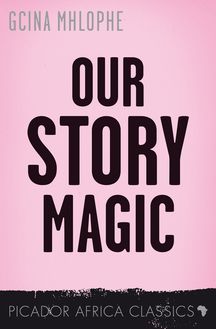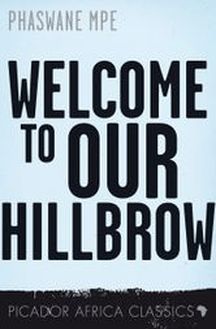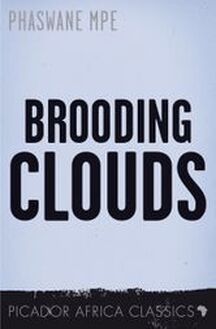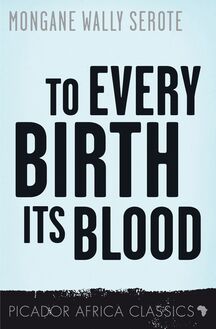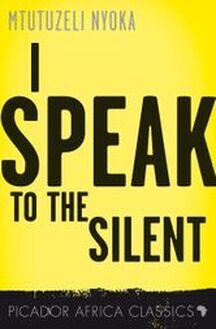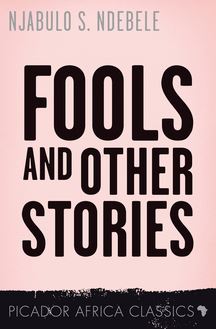A Daughter's Legacy , livre ebook
95
pages
English
Ebooks
2014
Vous pourrez modifier la taille du texte de cet ouvrage
Obtenez un accès à la bibliothèque pour le consulter en ligne En savoir plus
Découvre YouScribe en t'inscrivant gratuitement
Découvre YouScribe en t'inscrivant gratuitement
95
pages
English
Ebooks
2014
Vous pourrez modifier la taille du texte de cet ouvrage
Obtenez un accès à la bibliothèque pour le consulter en ligne En savoir plus
Publié par
Date de parution
01 août 2014
Nombre de lectures
0
EAN13
9781770103993
Langue
English
A Daughter’s Legacy is the story of Kedibone’s journey from childhood to parenthood, from the dusty streets of her home village to the modern worlds of university and working life.
Determination and resilience battle with fear and insecurity in Kedibone’s searing engagement with relationships and personal growth. This novel is a bold and necessary statement that exposes the taboos and abuse that a male-dominated culture allows, if not engenders. It breaks the silence and connivance in a way that is seldom done.
Publié par
Date de parution
01 août 2014
Nombre de lectures
0
EAN13
9781770103993
Langue
English
About Picador Africa Classics
The Picador Africa Classics imprint, launched in 2014 by Pan Macmillan South Africa, aims to build a catalogue of exceptional titles that may be out of print or lack presence in digital form. It builds on the historical concept of something like the African Writers Series as well as a publisher such as Ravan Press, which showcased works of excellence by African writers.
As a leading South African publisher, Pan Macmillan’s initial focus is on classics of South African literature, both fiction and non-fiction, but we hope to expand this to writers from other countries on the African continent.
Pamphilia Hlapa wasborn and raised in the rural village of Botlokwa in Limpopo, South Africa. A qualified Reiki 3 Practitioner, Hlapa also studied the Science of Mind through the Centre for Spiritual Living. Her first novel, A Daughter’s Legacy , was published by University of KwaZulu-Natal Press in 2006. This debut work earned Hlapa the Women Demand Dignity White Ribbon Award as part of the 16 Days of Activism on 25 November 2006 for her exceptional contribution in the fight against violence against women and children in South Africa. Hlapa has also contributed to several publications including Agenda Feminist Journal ; The Face of the Spirit: Illuminating a Century of Essays by South African Women , a project of the South African Department of Arts and Culture; O magazine; and a project sponsored by Sanlam in collaboration with Agenda Journal which led to the publication of a book entitled Rainfire , published by Out of the Blue in 2005. Hlapa also served as a Mentor for the Desmond Tutu Peace Foundation Women in Leadership Writing Programme. Hlapa’s passion is in spiritual and emotional healing through balancing spirit, mind and body by meditating and constant contemplation.
A Daughter’s Legacy
A Daughter’s Legacy
Pamphilia Hlapa
PICADOR AFRICA
First published in 2006 by University of KwaZulu-Natal Press
This ebook edition published in 2014 by Picador Africa Classics
an imprint of Pan Macmillan South Africa
Private Bag X19, Northlands Johannesburg, 2116
www.panmacmillan.co.za
e-ISBN 978-1-77010-399-3
in the text Pamphilia Hlapa 2006
in the editorial matter and final arrangement Pan Macmillan South Africa (Pty) Ltd 2014
All rights reserved. No part of this publication may be reproduced, stored in or introduced into a retrieval system, or transmitted in any form or by any means (electronic, mechanical, photocopying, recording or otherwise), without the prior written permission of the publisher. Any person who does any unauthorised act in relation to this publication may be liable to criminal prosecution and civil claims for damages.
This book is a work of fiction. Any resemblanceto actual persons, living or dead, is purely coincidental.
Original editing by Andrea Nattrass
Cover design of this edition by K4
Contents
Author s Note
1
2
3
4
5
6
7
8
9
10
11
12
13
14
Acknowledgements
Author’s Note
I know Kedibone’s story. I have seen my friends, my cousins, my sister and my mother endure her pain in silence. Kedibone did not suffer alone. She represents the stories of the boy-children and girl-children whom society and culture have failed.
As she nurtures her child, Kedibone wonders, what if her insecurities, her hurt and her pain, her fear and her anger damage her son in a way that she cannot handle? Will her son forgive her for that?
These are questions that many women, myself included, ask themselves today in their role as mothers. They look back to those days when they were unable to perceive the implications of the perpetual and universal victimisation of slaughtered beginnings, of cultural expectations and taboos, of broken societal promises and values, of mothers’ and fathers’ failure to raise mothers and fathers, and of society’s lack of competence in raising healthy men and women who can parent their own children.
But there comes a time in your life when you finally get it. In the midst of everything, you stop and say ‘enough crying and struggling to hold on’. When you do that, a sense of serenity is born of your acceptance; a new-found confidence is born of self-approval. You stop blaming yourself and other people for things they did to you or did not do for you. You acquire a new sense of safety and security from self-reliance when you learn to stand on your own. As Ralph Waldo Emerson said: ‘Whoso would be a [person] must be a nonconformist. Nothing is at last sacred but the integrity of your own mind.’ A sense of peace and contentment is born from forgiveness. You forgive yourself and others and you move on with your new life.
When I think about this book, I think of the girls and women in the community that I come from, the pains they suffer and the struggles they face each day in order to defend and uphold our cultural beliefs and secrets. Everything is always about what is socially and culturally acceptable, what you can talk about and what you cannot talk about. You can die as long as you die within cultural confinements; only then is your death dignified. It is in honour of these girls and women that I have written this book.
I know that in this part of the world, reading is not part of the culture. Even more importantly, the girls and women in my home community will not have the money to buy this book. Moreover, they will not fully understand the language in which this book is written. But my courage and strength to live on and tell the truth will inspire them. It will reach out to them and they will know that there is hope in this life. We share the same struggles and pain that we have shared for a long time; all of us suffer silently and individually with the fear of disturbing the normal day-to-day activities of the community.
We walked through the same dust; we went to the same schools; we all watched in horror when crimes of rape were committed against all of us, our family members and our friends. We watched the traumatic deaths of young girls due to backstreet abortions. We watched the horrors of single motherhood consume the lives of teenagers. We watched some of our friends and families die of HIV/Aids; people dying without purpose. And as for those who survived, we watched them die inside as they lost hope.
People carry on with life without realising the power within themselves to enjoy the greatness of life and the freedom to make choices. I watched mothers lose hope in their children’s lives and the future. I cry every time I go back there because the girls I know and grew up with are not the same girls any more. They are consumed by pain and fears, cultural taboos and pressures to surrender to mediocrity. Some have become wives at an early age; some got sold into marriages in order to escape poverty and the fear of facing the world alone. They were forced to surrender their personal power and will to live to the pressures of their world because there is no other life they know.
Throughout the writing of this book, I have remembered Dalia, Tebogo, Angela, Mmabatho, Mosibudi, Khomotso and Winnifred. In that very same dusty village, lie my roots – the roots that I will honour and cherish all the days of my life, the roots that taught me survival and resilience. They taught me respect and tolerance for my fellow human beings and the value of faith and prayer. I honour those roots and the lives of my friends who died before they could find courage, as well as those who have suffered the hardships of poverty and the cruelty of child molestation, rape and sexual abuse. It is my prayer that one day this book will be translated into the language they will all understand, the language they can identify with, so that they can find some comfort and hope in the story.
I know they still hold the belief that it is culturally wrong to reveal certain things that are considered taboo. It is culturally wrong for a woman to reach the age of 21 without a child. It does not matter whether you are married or not; you have to have a child to prove you are not barren. Children are born out of children; they become an extension of the family and they grow up knowing their mothers as their older sisters. It is culturally acceptable to end up in a career you do not even like because all that matters is that you put food on the table. It is also acceptable to be sick and to die of poverty-induced illnesses and diseases. Malnutrition and poor health conditions will merit sympathetic support. Mental illnesses and psychological disorders are seen as either the results of witchcraft or as a punishment from the angry ancestors.
It is acceptable for a woman to stay and suffer in an unhealthy marriage because culturally lebitla la mosadi ke bogadi , meaning ‘a woman’s death and grave is in her marriage’. Once you get married, it is expected that you should stay there no matter what you endure. You should never go back home because you will shame your family. You just need to ‘hold on’ until you die.
Your own brother can sleep with your wife while you are at work and everybody in the village will know about it except you. Boys and men can force women into sex and never take responsibility for the support of the children born out of those relations. Your family will tell you to ‘leave him alone, this child is ours and we will not fail to support it’. But nobody at home earns a decent salary.
What kinds of mothers and fathers are we nurturing for our future descendants? Boys do not know how to grow up and become real fathers. They ill-treat women and they know they can get away with it.
You are taught not to question but to abide and listen to your elders in the name of respect. If you challenge anything, the thinking goes, you w
